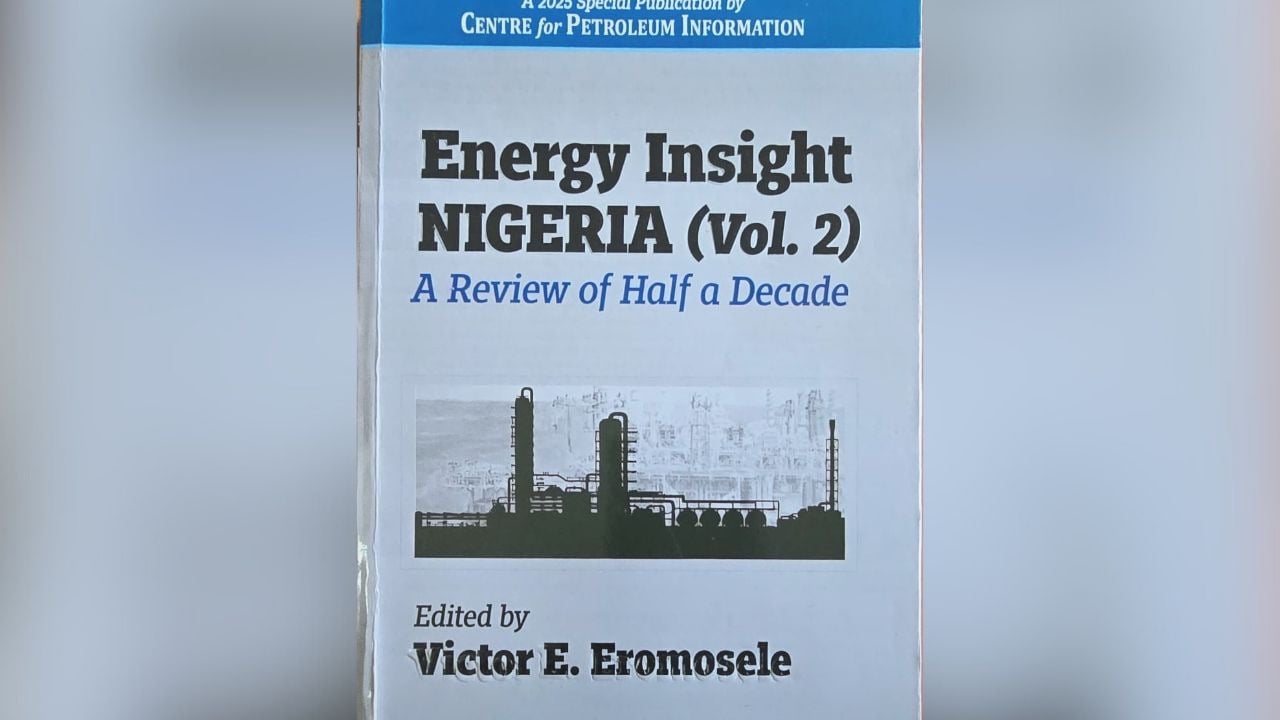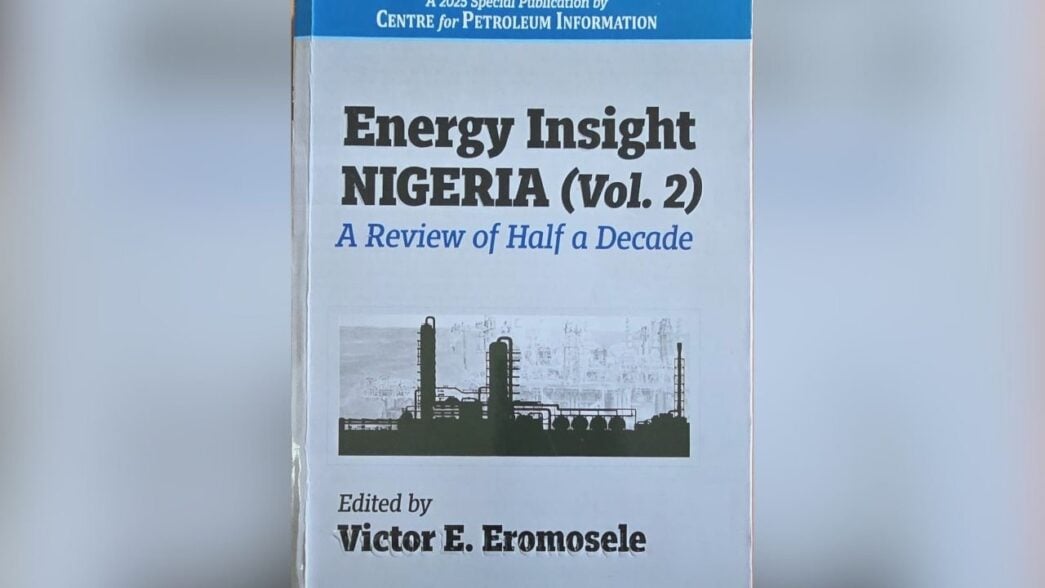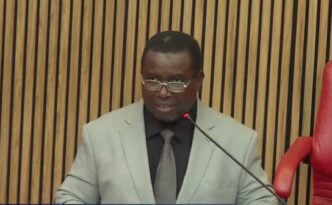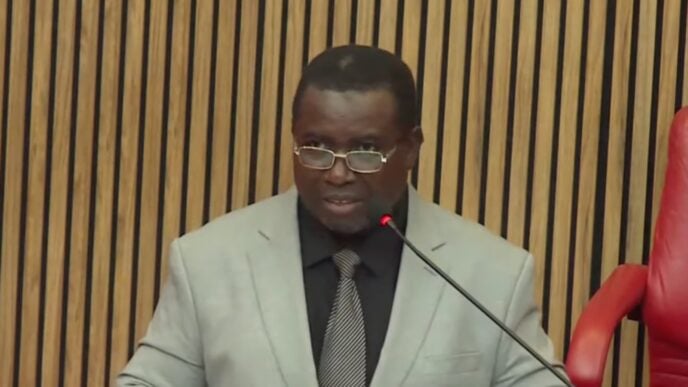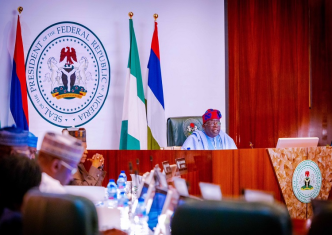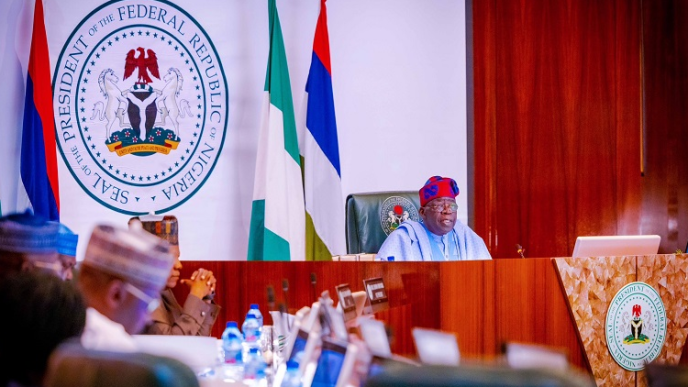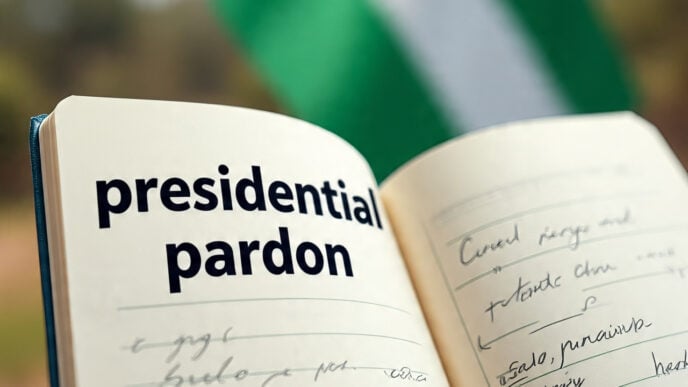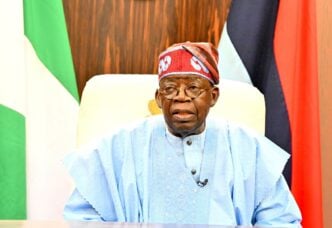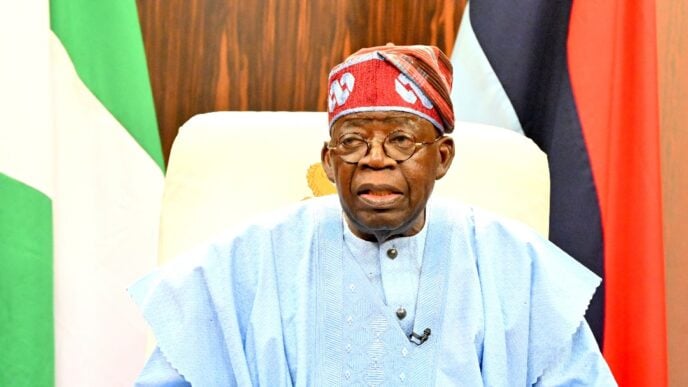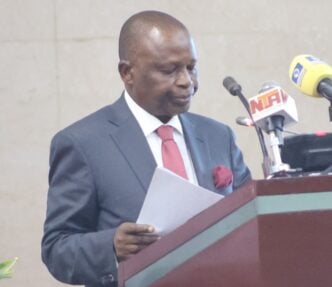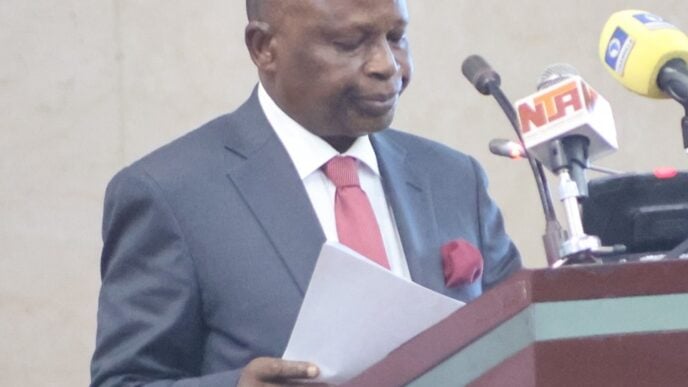The last five years have been defined by tumults and transitions. We have witnessed these at the global, national and industry levels. The COVID-19 pandemic brought the world to a strange territory, a halt even, and at some point, it seemed the end was nigh. Geo-political tensions and flareups have been ample, constantly reminding us of how the space between the global, the local and the sectoral has significantly shrunk. Our immediate neighbourhood of West Africa has been anything but quiet. At home, we have had the intimation of social upheaval as well as a historic election, and consequential reforms with serious economic, social, and maybe political, implications. Sector-wise, the transition away from fossil fuels accelerated, then lately seems to be abating; and Nigeria’s oil and gas sector has produced historic highs and lows.
When thrust into tempests, rational humans don’t just throw up their arms. They try to make sense of what is going on around them. They take a pause, then activate their agency. They reflect; they deliberate; they project. They try to master and navigate the moment, using knowledge and thought as their compass. This, it appears to me, is precisely what the esteemed members of the Centre for Petroleum Information (CPI) have been doing: to, as a collective, make sense of, and ultimately master, their rapidly evolving operating environment. Through different fora such as the Petroleum Policy Roundtable, the Energy Finance Forum, the Industry Public Symposium, the Oil and Gas Law Forum and others, CPI has been offering its members the compass to navigate through the tempests of the time. For an organisation whose vision is “creating value through knowledge and networking,” this is quite apt and a fitting tribute as it marks its silver jubilee and contemplates the next chapter.
But CPI, in my considered view, has done something even more significant. It has ventured beyond creating enduring private value for its members to producing a desirable public value. CPI has done this by distilling the knowledge and the wisdom emanating from its various convenings into a book, which I think will be an invaluable resource to its members and, remarkably, to a much wider audience. Titled “Energy Insight Nigeria (Vol 2.)—A Review of Half a Decade,” the book is a necessary and logical sequel to the first volume published in 2020 to mark CPI’s 20th anniversary. Combined, these two books offer a rare illumination of the contours, the challenges and the promise of the petroleum sector, which is still—and will continue to be—a significant and strategic component of Nigeria’s economy, even when its share of government’s revenue and GDP is falling, and is expected to decline even further.
I have always argued that the petroleum industry is a sector that Nigerians across the board need to understand more and that policymakers need to fully optimise. My position is simple: for decades, the petroleum sector has been the mainstay of our pollical economy but a blessing that we have failed to deploy optimally for the benefit of the generality of our people. We need to govern this common(wealth) better, and well-distributed knowledge will be indispensable in this task. Through these books, CPI has made an immense contribution to improving public understanding of this still strategic sector and to facilitating better natural resource optimisation in a country that is in dire need of it. This is why I see this particular effort as a public value, which to me is the highest form of value (because it incorporates private value but goes beyond it).
Advertisement
A delightful blend of explainers, case studies, analyses and think pieces, this second volume is a selection of the presentations made on CPI’s platforms between July 2020 and May 2025. These presentations have been turned into chapters, organised into sections, and interspersed with epigrams, updates and section summaries, which all add up to make the book a pleasing read. Edited by Mr. Victor Eromosele (a veteran himself and the Executive Director of CPI), the book is divided into five sections, and contains 30 chapters, 20 boxes/vignettes, and an appendix. I will wager that it is difficult to find a more comprehensive and compelling compendium on contemporary issues in Nigeria’s oil and gas sector than this book. The 432-page book stands out in the breadth of its coverage and in the intimidating rollcall of its authors, from industry grandees and thought leaders to regulators and foremost experts from other but related fields. It is to the credit of the writers and the editor that despite the technical nature of the petroleum sector, the book remains comprehensible. The language is elevated yet accessible, which is not what one can readily say of many technical books. Kudos to all involved.
The book’s five sections follow a sequential pattern, the first laying the foundation and the last pointing to an inevitable future. The first section is titled “Upstream and Industry Contemporary Issues”; it has seven chapters and touches on topics such as declining oil production, divestments by IOCs, and how some indigenous oil companies are making the most of their inherited assets. The second section, the longest, is on “Policy, Regulations and Legal Issues”, and zeroes in mostly on the implications of the 2021 landmark petroleum law, which we shall return to. The third section is titled “Downstream, Gas and Power” and in five chapters, it looks at the issues around petrol subsidy, deregulation, local refining and the power sector. Section Four also has five chapters and it lays out the dynamics of “Financing a Changing Industry”. And the last section, “Energy Transition and Low-Carbon Future,” examines Nigeria’s preparation for the green economy, the role of solar energy and electric vehicles, and the adjustments that our public refineries must make.
Despite the near linear arrangement, readers can peruse the chapters in ways that serve their purpose. Some of the chapters are in conversation with one another, as in the questions and concerns raised in one chapter are answered in a subsequent chapter, take for instance chapters 4 and 5, 12 and 13, 21 and 22 etc. A few authors have more than one entry. These include Sir Egbert Imomoh (chapters 4 and 27), Engr. Anthony Ogbuigwe (chapters 19 and 29); Engr. Afolabi Oladele (introduction and chapter 25) and Mr. Victor Eromosele (preface and chapter 30). It is also noteworthy that lawyers are judiciously represented in the book. I counted at least ten authors identified as lawyers. There might be more.
Advertisement
The dominance of lawyers may be explained by the fact that a sizeable portion of the book is devoted to the provisions of and matters arising from the Petroleum Industry Act, which was signed on 16th August 2021 by late President Muhammadu Buhari. The prominence of the PIA in the book is also not surprising. The law came to pass after many failed attempts and after nearly 20 years in the making. The PIA is, by a country mile, the most consequential development in the petroleum sector in the last five years. It can be likened to a tectonic shift. It created new institutions, new fiscal regimes, new rules of engagements, and new expectations. This also means that there are many things to unpack and some grey areas in the omnibus law. While there was a universal celebration of the eventual passage and signing of the law, the logical question for industry players was and still is: what does this mean for our operations and viability? The authors did justice to the issues, including pointing out some design flaws, which is to be expected since there is no perfect law. Some of the subsequent regulations and executive orders have provided clarity while some of these have also thrown up their own challenges. That is the nature of things. While we should always aim for perfection, we should not make the perfect the enemy of the good. The investments and the time lost while we wandered endlessly on the PIB would probably not be regained. The world waits for no one, not even for Nigeria. We need to constantly bear this in mind in the way we approach regulation generally or in how we go about the proposed amendments to the PIA.
For me, this important book re-affirms certain things and throws up some critical issues. The first is the value of knowledge production as part of the project of development. This book is a testimony to the fact that some Nigerians in different arenas are busy thinking and discussing about their fields and their country. It is not everyone that is just complaining or cursing; some are actually tapping deep into their reservoir of knowledge to generate ideas and solutions that should produce better outcomes for the country. This is commendable and should be encouraged. If the countries that have resolved most of the existential challenges that we face are still thinking their way through, we cannot afford to give up on knowledge production and in the search for enduring solutions. In fact, we need to become more of a thinking society.
However, a legitimate rebuttal can be that the problem of Nigeria has never been the lack of good ideas. True, the uptake of good ideas has been lean. This leads to my second observation. Good ideas will not naturally rise to the surface. They are actually mostly drowned out by bad ideas. So, good ideas have to be pushed, marketed even. The fact that an idea is sound does not mean that its value will be obvious to everyone or that it will not be resisted for different reasons. And even when accepted, the good idea-to-action pipeline is either clogged or broken. This is not peculiar to Nigeria, and this is a challenge that all those working in the realm of ideas and the arena of change have to continue wrestle with. Even after taking into account the fact that ideas (especially good ones) have a gestation period, it is simply not enough to throw up good ideas and expect everything else to fall in place. They rarely do. CPI thus needs to devise and implement a strategy for engaging the policy process more systematically, and for the long haul. This organisation, more than most, has the leverage and the reach to positively shape policy outcomes.
The third point is that policymakers, especially industry regulators, obviously need to consult more with key stakeholders in making and reviewing critical decisions. This book is replete with examples of policies that are deficient in rigour and that could benefit from the realism of those on the frontline. Here, I am reminded of the quote by John Dewey, an American political philosopher: though we need the shoemaker to make a shoe, but we need the shoe wearer to tell us where it pinches. The fourth point is that the death of the oil age is a bit exaggerated, and I am not saying this because “drill, baby, drill” has recently become a new anthem. Demand may wane, but we have certainly not seen the end of the oil era. The question then is how do we make this new lease count not just for a few but for the generality of Nigerians and how do we reverse the counter-intuitive narrative of resource curse, of which our country is a prime example.
Advertisement
The fifth point is related to the last one, and it is derived from the appendix. At first, I was wondering why the appendix covered a period of 25 years when the book’s scope is five years. I am sure the editors gave a good thought to this, and I am glad that they finally settled for the quarter-of-a-century horizon. I noted, with a profound sense of sadness, how the remarkable strides recorded in the first decade of this century gave way to what you can term a secular decline of our oil production in the last few years. It is another stark reminder that collective greatness is actually not beyond us but that we have also made a habit of regressing. There are two options for us from here: we can be content with looking back at that period as a golden era of our oil history or we use it as inspiration to aim for even higher heights. The question is: which option are we going to take?
In conclusion, I find this book to be thought-provoking, insightful, enjoyable, and enriching. The expositions are lucid, the diagnoses are insightful, and the prescriptions are practical. This is not surprising, given the wells of experience and expertise that the writers drew from. Though a few chapters still feel like talking-points or leave you wanting more, but on the whole, this is an important and indispensable resource, an invaluable reference material, a great addition to knowledge. I eagerly recommend it to industry players, policymakers, researchers, journalists, public intellectuals and others who are interested in getting a handle on Nigeria’s still strategic petroleum sector.
Adio, former Executive Secretary of NEITI and founder of Agora Policy, delivered this review at the unveiling of the book and the 25th anniversary of CPI held at the Lagos Oriental Hotel on 17th October 2025.
Advertisement
Views expressed by contributors are strictly personal and not of TheCable.

